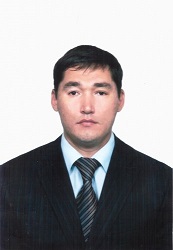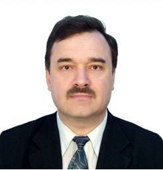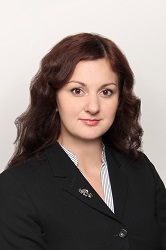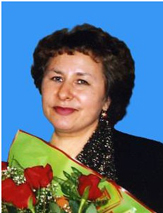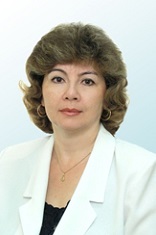Departments
Department of Laboratory Medicine
- Basic information
- Educational activity
- Staff
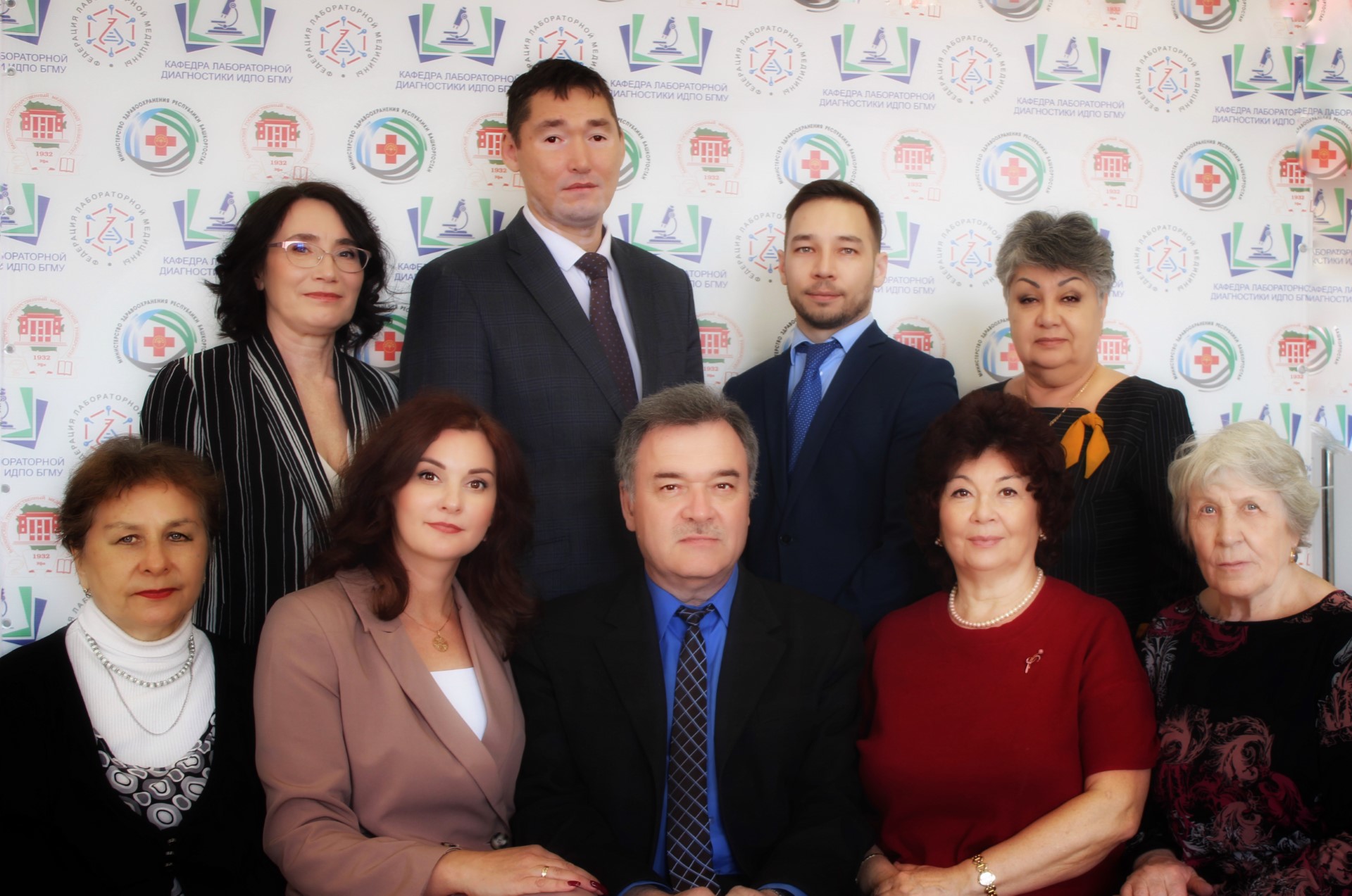
The Department of Laboratory Medicine (Clinical Laboratory Diagnostics in Russian) was organized in 2003 on the basis of a Course in Laboratory Diagnostics, which worked in 1998 - 2002 as part of the Department of Bioorganic and Clinical Chemistry of BSMU. At the origins of the opening of the Course were: head of the Department of Bioorganic and Clinical Chemistry, Corresponding Member of the Academy of Sciences of the Rep. of Bashkortostan and the Russian Academy of Natural Sciences, D.Med.Sci., Prof. Eduard Gazalievich Davletov [1947–1998]; PhD, Associate Professor (since 2001 - D.Med.Sci., professor) Aleksandr Zhanovich Gilmanov; PhD, assoc. prof. Rezeda Mazgutovna Salyakhova and PhD, senior teacher Zora Khafizovna Tenisheva.
Since its foundation, the Course has been headed by Aleksandr Zh. Gilmanov, from 09.1999 – D.Biol.Sci. Elvira A. Imelbaeva, from 09.2000 – PhD, assoc. prof. Rezeda M. Salyakhova. The Course and subsequently the Department were taught by: chief specialist in Lab Diagnostics of the Ministry of Health of the Rep. of Bashkortostan Rezeda V. Shishkina, heads of large clinical laboratories in Ufa Albina P. Emelyanova, Filzja M. Usmanova, Zinfira A. Garipova, as well as Lab Doctors of the highest category with extensive work experience – Lyubov S. Demkina, Nadezhda K. Larina, PhD Larissa M. Makarieva, immunologist PhD Tatiana M. Kotsenko, cytologists Tamara I. Baykova, Rimma F. Galeeva. A significant contribution to the educational work of the Department was made by assoc. prof. PhD Galina N. Gromova, assoc. prof. PhD Nailia F. Ganeeva, assoc. prof. PhD Klara F. Kondratieva, ass. Galina M. Goryukhina. The most experienced clinical immunologist, D.Med.Sci. prof. Raisa M. Khairullina has done a lot to improve the teaching of immunological disciplines at the Course and Department (worked until 2014), hematological and general clinical disciplines - ass. Inna V. Makarieva (worked until 2005), also Tatiana I. Tuul, Zinfira R. Garipova, Rosa T. Ziganshina, Yana Yu. Gryaznova, Natalia E. Razbezhkina, Elena G. Abdeeva, PhD Albina K. Mardanova.
From the very start of the Department our dear collegue, prof., D.Med.Sci. Airat R. Mavzyutov [1962-2022] worked with us supervising the Microbiology disciplines.
In 2008, after completing 2 year residency, Yulia A. Akhmadullina became a full-time assistant of the Department (currently – PhD, assoc. prof.). Those currently working at the Department passed the internship in Clin Lab Diagnostics Guzel F. Khasanova and Fanil S. Bilalov (since 2010, currently D.Med.Sci, Assoc. Prof.). Senior laboratory assistants of the Department – Renara M. Lugumanova (2003 – 2005), Elena A. Shulga (2005 – 2007), Tatiana N. Titova (2007 – 2011), Alfiya T. Ziganshina (since 2012).
Currently, the following employees work at the Department of Laboratory Diagnostics of the Institute of Postgraduate Education: MD PhD, D.Med.Sci., prof. Aleksandr Zh. Gilmanov (head of department); PhD D.Biol.Sci. prof. Elvira A. Imelbaeva; MD PhD, assoc. prof. Rezeda M. Salyakhova; MD PhD, assoc. prof. Yulia A. Akhmadullina (head of academic department), MD PhD, D.Med.Sci., assoc. prof. Fanil S. Bilalov, immunologist MD PhD Dilara D. Prolygina. Experienced specialists participate in the work of the Department: Vasilya T. Stepanova., Lyubov S. Demkina, Rosa Kh. Aminova, Svetlana R. Valitova.
The department is located at the bases of the Medical Genetic Centre, LLC RZhD-Medicine (Russian Railways), the BSMU Clinic, City Clinical Hospital No. 21, City Emergency Hospital, Regional Children’s Hospital. At the main bases there are 7 good equipped educational laboratories, a lecture hall, also clinical and specialized laboratories of large healthcare institutions in Ufa (G.G. Kuvatov Regional Clinical Hospital, Regional Children's Clinical Hospital, Regional Clinical Hospitals No. 18, 21, City Emergency Hospital etc.) are involved. The total area of the premises is quite sufficient for a full-fledged educational process. The staffing level of teaching staff is 100%: 2 professors, 3 associate professors, 1 senior teacher and 1 assistant work in the main positions and part-time. All teachers improved their qualifications within the established time frame.
THE EDUCATIONAL PROCESS at the Department includes training and improving the qualifications of medical laboratory specialists and allergists-immunologists. Educational work is organized in accordance with the requirements of current regulatory documents including Federal laws, Orders of the Ministry of Education and Science of the Russian Federation and Orders of the Ministry of Health of the Russian Federation, Federal state educational standards of higher education (residency) in the specialties “Clinical laboratory diagnostics” (2014), “Bacteriology” (2014), “Allergology and immunology” (2014).
The Department has all the necessary educational and methodological documentation in 3 specialties and modern technical teaching aids (multimedia, computers), laboratory instruments, reagents, microscopes and sets of microslides, tables, etc.; training and testing programs are used.
Employees of the Department give lectures, conduct seminars and practical classes in professional retraining (PR) and advanced professional training (PT) for medical laboratory specialists (doctors, biologists). Every year, 10-13 cycles of PR (504 hours) and PC (144 hours) are carried out in the sections of the disciplines “Clinical laboratory diagnostics”, “Bacteriology”, “Allergology and immunology”, in which up to 180 specialists from medical laboratories are trained on a budgetary and a contractual basis. On-site courses and training are conducted using distance and electronic technologies. Since 2017 the Department is providing continuous medical education; 36-hour training cycles are conducted according to specially designed programs.
20 to 40 specialists of 1 year and 2 years are studying in residency.
Educational and methodological materials developed and updated by teachers of the Department:
· Additional professional programs (APP) and work programs (WP) for advanced training and professional retraining in the disciplines “Clinical Laboratory Diagnostics”, “Bacteriology”, “Allergology and Immunology”,
· Teaching aids, including a chapter in the National Guide to Clinical Laboratory Diagnostics and chapter in Federal Textbook for residents,
· Multimedia lectures, seminars and atlases on discipline topics;
· Guidelines for the preparation of coursework by students;
· Tests for monitoring the level of knowledge of cadets (teaching and monitoring) for each cycle (PC version);
· Qualification tests for each specialty (PC version).
· Advanced training programs for doctors within the framework of continuing medical education (CME) in the specialties “Clinical Laboratory Diagnostics”, “Bacteriology”, “Allergology and Immunology”.
It is planned to preserve and modernize the existing residency programs, traditional PR and PT (revision and updating teaching materials, control materials, guidelines), as well as the development, introduction and modernization of new training programs in the CME system for doctors and biologists. Planned topics for new curricula (traditional and CME): “PCR in laboratory research”, “MALDI-TOF spectrometry in bacteriology”, “Modern methods of cytological research in the clinic”, “Laboratory diagnosis of autoimmune diseases”, “Modern methods of parasitological research”, “Organization of laboratory services and ensuring the quality of laboratory research”, “Electrophoretic methods and studies in the clinic”, “Modern laboratory studies in cardiology”, internship in the sections of clinical diagnostics and bacteriology, etc.


